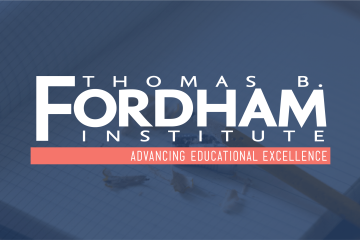Teacher voice is often missing from education policy discussions, leading to what can feel like an adversarial relationship between pundits and practitioners. Educators for Excellence (E4E) strives to reframe that relationship by amplifying the interests and concerns of teachers across the land. They have recently released the results of their wide-ranging teacher survey, conducted annually since 2018, and this year’s findings are well worth the attention of education leaders.
Developed by a cadre of eighteen teachers dubbed the National Teacher Leader Council, the eighty-five-item questionnaire was administered online during the first two months of 2024. A nationally representative sample of 1,000 full-time, pre-K–12, public-school teachers working in both district and charter schools responded. Following the overall demographics of the profession, respondents were overwhelmingly female and white. Nearly 60 percent were between the ages of thirty and forty-nine, and a similar percentage reported having earned tenure in their job. Eighty-five percent taught in traditional districts. Forty-five percent of respondents worked in suburban schools, 29 percent in urban settings, and the remainder in rural locales. Approximately one-third of the sample taught in large schools (more than 1,000 students), and another third taught in small schools (less than 500 students). A plurality of respondents taught grades pre-K–5.
The topline findings are organized into seven themes, spanning topics like student outcomes, curriculum and instruction, feelings about union representation, testing, technology, etc. Here is a selection of the big picture takeaways: Teachers believe that students are still struggling in the wake of the pandemic, with 70 percent reporting that their students are behind academically and 64 percent reporting that their students’ mental well-being is worse compared to pre-pandemic. Teachers are pessimistic regarding their profession, with just 16 percent indicating they would recommend the job to others—an all-time low among E4E polling results. Interestingly, teachers of color report that their morale and outlook have significantly improved over the past few years after also hitting all-time lows.
Generally, a majority of teachers are positively disposed toward their unions’ efforts to address traditional issues, such as salaries and working conditions, but those positive numbers are down from previous years. Overall satisfaction with efforts to transform the profession from within is below 50 percent, and is even lower for certain specific union functions like improving professional development (42 percent) and expanding career ladders (38 percent). To improve working conditions, teachers are calling for more collaborative and dynamic work environments. More specifically, they expressed interest in strategic staffing approaches that would break from traditional school models and focus on team teaching and other collaborative structures.
A section of questions related to curriculum highlighted concerns over what many teachers view as a quick switch to science-of-reading-based literacy instruction. More than 60 percent of teachers say their district has implemented new curricular materials aligned to the science of reading in the last year, but only a quarter of those teachers say their instructional practices have shifted “very much” as a result of the changes. For elementary school teachers specifically, a slightly higher 31 percent say their instructional practices have shifted. A majority of respondents across the board indicate that better support and training are needed to fully implement the shift to science of reading.
There’s far more detail to be had from the raw question and response charts at the back of the report, covering issues both mundane and hot button, including standardized testing, college readiness, and some “culture war” issues. Questions and answers regarding teachers’ adoption and use of artificial intelligence are new and will be of interest to many on the policy front. There is, literally, something for everyone in this report. Here’s hoping policymakers pay close attention to the results.
SOURCE: Educators for Excellence, “Voices from the Classroom 2024: A Survey of America’s Educators” (May 2024).




